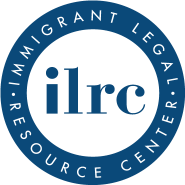Offense
Disorderly: Prostitution
Aggravated Felony (AF)
Not AF
Crime Involving Moral Turpitude (CIMT)
Always a CIMT, whether prostitute or customer.1Rohit v. Holder, 670 F.3d 1085 (9th Cir. 2012). To avoid, see 370, 647(a), (h) or “residing” under 315.
Other Removal Grounds
Inadmissible for “engaging in prostitution” if sufficient evidence the person engaged in an ongoing practice of offering sexual intercourse for a fee.
Try to plead to a different offense; if that is not possible, plead to offering lewd act for a fee. See Advice.
Victims of human trafficking. If the defendant might be a victim, see discussion at Advice to H&S C 11358.
Advice and Comments
PC 647(b)
For more information and citations on the prostitution inadmissibility ground, see endnote.2The BIA has long defined prostitution for the inadmissibility ground as “engaging in promiscuous sexual intercourse for hire.” See, e.g., Matter of Gonzalez-Zoquiapan, 24 I&N Dec. 549, 553 (BIA 2008), citing 22 C.F.R. § 40.24(b), discussing the inadmissibility ground at 8 USC § 1182(a)(2)(D)(i). Section 647(b) punishes engaging in any lewd act with another person for money or other consideration, a broader definition. Lewd acts include touching of genitals, buttocks or female breast with the intent to sexually arouse or gratify. CALCRIM 1153. For this reason, the Ninth Circuit found that conviction of offering a lewd act for a fee under a Hawaiian statute similar to § 647(b) did not alone prove that an LPR returning from a trip abroad was inadmissible for prostitution. Kepilino v. Gonzales, 454 F.3d 1057 (9th Cir. 2006).
To “engage in” prostitution means that the person engaged in a regular pattern of behavior or conduct. One or two convictions for offering intercourse for a fee may not prove the person is inadmissible under the prostitution ground. Matter of T, 6 K&N Dec. 474 (BIA 1955).
In Matter of Ding, 27 I&N Dec. 295 (BIA 2018) the BIA considered the definition of prostitution for purposes of the aggravated felony at 8 USC 1101(a)(43)(K)(i), owning, managing, etc. a prostitution business. It held that for that purpose, prostitution includes sexual conduct in exchange for anything of value and is not limited to sexual intercourse. The BIA did not change the definition of prostitution for the inadmissibility The BIA acknowledged that Congress could have a reason to define prostitution differently in the AF than in the inadmissibility ground, and—significantly—that those grounds were added to the INA at different points in history when the definition envisioned by Congress was quite different. See also § N.10 Sex Offenses.
Engaging in prostitution within the previous 10 years, or intending to do so now, is a ground of inadmissibility. It can be proved by conduct and does not require a conviction. The definition for purposes of the inadmissibility ground is offering sexual intercourse for a fee. Section 647(b) is broader because it includes lewd acts for a fee. For that reason, for an LPR returning from a trip abroad, a conviction of 647(b) does not alone conclusively prove the person is inadmissible for prostitution.
Just one or two incidents might not prove the person is “engaging in” prostitution.
Customers are not inadmissible under the engaging in prostitution ground. However, any 647(b) conviction is a CIMT, which carries its own consequences.
